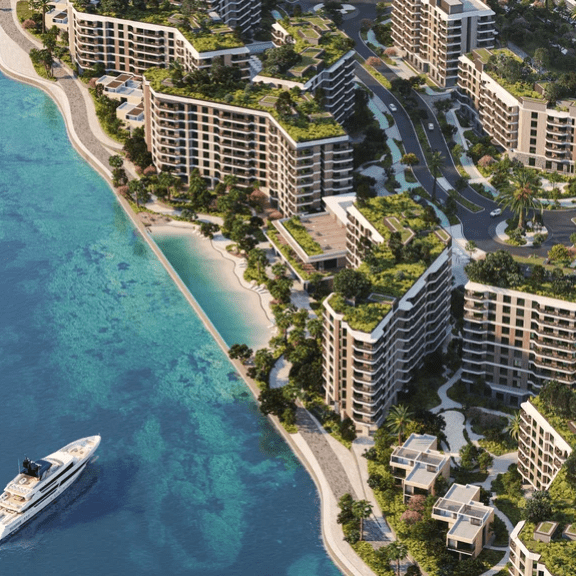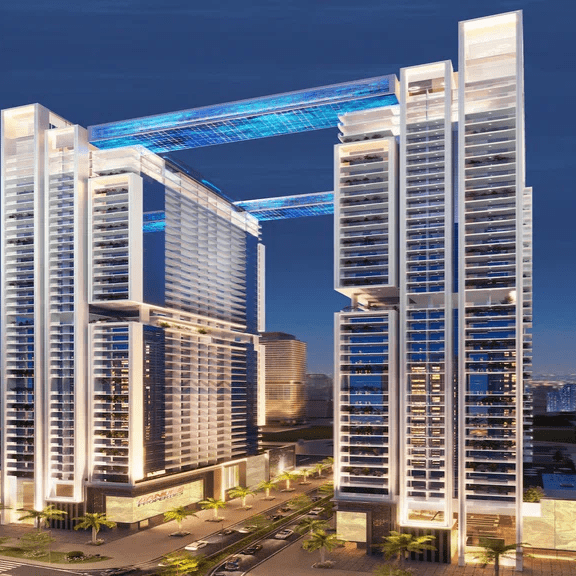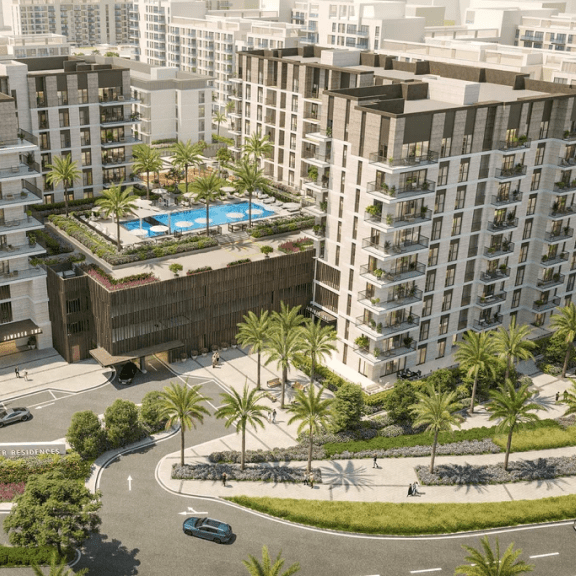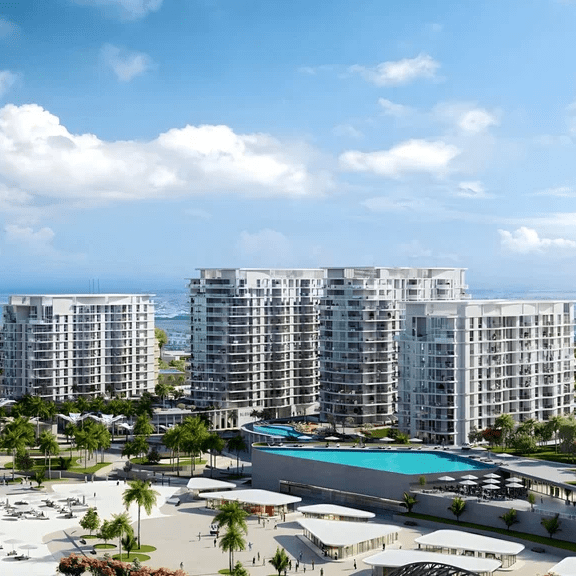Dubai’s real estate market has seen a few ups and downs during its short history. Foreign investors suddenly appeared, the market worked out understandable rules of the game, new guarantees were introduced to protect buyers and sellers, and investing in Dubai real estate became a safe haven for foreign funds.
Ups and Downs of a Young Market
Dubai’s international real estate market celebrated its 20th anniversary in 2022. The emirate authorities first allowed foreigners to buy properties in 2002. Dubai's population was around one million people at that time and the majority of them were citizens of other countries. March 2006 saw the adoption of a law that established the right of ownership for foreigners and that stimulated market growth. The boom peaked in 2007. Between 2002 and 2008, real estate prices in Dubai almost quadrupled.
Billions of dollars were put into megaprojects in the construction industry, including Jumeirah Garden City (estimated cost $95 billion), Dubailand ($64 billion), The Lagoons ($25 billion), Palm Jumeirah ($14 billion) and The World ($14 billion).
Upper House (Housearch)
However, the 2009 crisis dealt a heavy blow to the local real estate market: over a single year, prices for villas and townhouses dropped by more than 8%, and the fall for apartments was almost 50%. Nearly half of all construction projects in the UAE worth a total sum of 1.1 trillion dirhams ($582 billion) were either frozen or cancelled.
When the economy returned to growth, the frozen projects were resumed. Residential property prices in Dubai rapidly increased between January 2012 and the end of 2014, by 21.5% annually. By the end of 2014, that growth began to slow. In 2015, the Dubai Residential Property Price Index (RPPI) saw an 11% drop. The market registered a drop in prices that continued until 2020. Residential property prices decreased by 0.4% in 2016, 3.9% in 2017, 8.6% in 2018, 6% in 2019.
In 2020, due to the global pandemic, the total number of deals on the real estate market in Dubai dropped by 8.8% and the prices dropped by 7.1% in comparison to 2019.
New buildings in the UAE
Demand and Sales Go Up
There was renewed demand for residential properties in Dubai in 2021. In June, the number of real estate deals grew by a record 173.5% year-on-year which amounted to 6388 deals. According to Property Finder, this is the highest monthly figure of the last eight years.
Buyers were interested in both finished properties and those under construction. The secondary market accounted for 62% of all deals, the remaining 38% were unfinished properties. In June 2021, 2418 unfinished properties were sold for a total price of 3.5 billion dirhams ($950 million) and 3970 finished properties were sold for a total price of 11.29 billion dirhams ($3.1 billion).
This growth was mainly due to improving economic conditions and the introduction of a new government policy of issuing long-term visas to investors and highly-skilled specialists.
The Sterling (Housearch)
Laws to Protect Buyers
Emirate authorities adopted legislation in 2021 that protected buyers of real estate. The goal of the innovations was to make the market even more appealing for new investments.
How UAE Laws Protect Real Estate Buyers:
- developers are only allowed to charge administrative fees that have been approved by the municipality; developers can only sell properties under construction on the condition that they own the developed land;
- developers are penalised if the construction end date is more than six months overdue. In the case of a more significant delay, the law allows for the withdrawal of the property and for a new developer to take over;
- there is a 10-year warranty for construction;
- property owners may form an association for real estate owners;
- if a buyer suffers a significant loss, they may cancel the deal and receive a full refund.
A new system for issuing long-term visas was introduced in 2019. It applies to foreign investors (including those who invested in property), highly-skilled specialists (doctors, scientists, inventors, and people working in the arts). Depending on the volume of investments, the visas are issued for five or 10 years and are renewed automatically.
According to a CNBC report, 2021 was a record year: the total sum of all deals amounted to $35 billion. This was the highest amount since the crisis of 2008.
DAMAC Lagoons - MALTA (Houserach)
Dubai Real Estate Market Overview for 2022
The European geopolitical crisis combined with UAE economic growth sent the real estate market in Dubai to new heights.
According to a Bloomberg report, prices for elite real estate in Dubai grew by 89% in the last 12 months. The prices more than doubled in the most sought-after neighbourhoods, such as Palm Jumeirah, Jumeirah Bay and Emirates Hills. In June, for example, a villa in Palm Jumeirah was sold for a record $82 million. Arabian Business data showed that real estate revenue in Dubai in September crossed the mark of $325 million in two days: 386 properties were sold, of which 341 were apartments and villas in luxurious closed complexes in different parts of the emirate’s capital.
The cost of elite Dubai real estate keeps growing: in the third quarter of 2022, prices surged by 29%. That was caused by a constant influx of wealthy foreigners who tend to settle in the best neighbourhoods. An important role was played by Russian citizens who moved to Dubai to hold onto their assets.
What’s in Store for the Real Estate Market in 2023
Forecasts for 2023 vary. Some believe that the boom might soon end. According to a survey conducted by Reuters, residential property prices in Dubai may drop by 3% in 2023. Other researchers believe that market growth will slow down. The prices will keep growing but the growth figures will settle at around 4.5% and 3.0% in 2023 and 2024 respectively. The market is expected to stabilise and provide investors with good protection against inflation.
In a Nutshell
There are no indicators that the Dubai real estate market will collapse. Even if price growth slows down, or if prices decrease slightly, this will not have any significant impact on the situation. Stable demand and continuous efforts from the authorities to keep clients interested in local real estate will perpetuate a favourable investment climate in the emirate.
Cover photo: Aleksandar Pasaric (Pexels)




